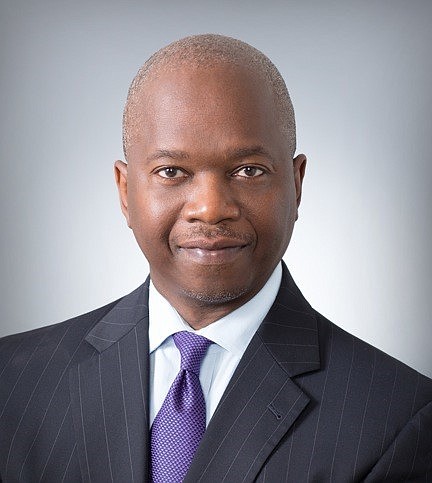
Gregory Redmon began his legal career in 2005 as a staff attorney for the state Supreme Court before going into private practice in 2015. Redmon is president-elect of the Daniel Webster Perkins Bar Association.
Who or what inspired you to become a lawyer?
After considering a world of choices, for me I perceived that I should become either a full-time pastor, or a lawyer. The Good Lord did not lead me through an open door into the full-time ministry. Instead, He chose to open many doors. That has resulted in my present law practice.
One person (other than your spouse or partner) who inspires you:
Harriet Tubman. She was a divinely inspired person of valor. Mrs. Tubman spent several years of her life leading multitudes of enslaved black people to freedom.
How do you relate your undergraduate degree to your practice of law?
As an undergraduate student, I studied biochemistry and chemistry. In that course of study, I learned that there are certain immutable laws of chemistry and physics that express the reality of an ordered universe. As such, we tend to observe that when principles are acknowledged and followed, there are reproducible results for any given outcome. The relation to what I studied many years ago relates to my law practice in this regard, an adherence to established norms and best practices trends toward favorable outcomes in my clients’ legal matters.
How did you decide your practice area? And why have you chosen that?
Initially, I became interested in elder law during my third year in law school. I recall musing then about serving senior citizens, like my parents were at the time, by assisting them with their legal interests. I ultimately settled on practicing in this area of law because it presents the right mixture of economic reward and professional satisfaction.
What has been the biggest change in your practice area since you passed the Bar?
In 2011, the Florida Legislature revised the durable power of attorney statutes. This statutory revision caused our law firm to radically change the substance of newly drafted durable power of attorney documents. Furthermore, we began advising our clients that reliance on durable power of attorney documents that had been drafted before the referenced statutory revision were at risk for no longer being accepted for their intended uses. This change in the law impacts whether a person can have an agent or attorney-in-fact of his or her choice conduct financial or personal affairs, or whether that person must be subjected to guardianship if he or she is adjudicated as incapacitated in a limited or plenary sense.
What do you think will be the next biggest change in your area of law?
As the population of the United States, especially in Florida, becomes increasingly older through the ever-aging baby boomers, the sheer volume of these citizens will undoubtedly affect elder law practices. It seems predictable that a “sudden” influx of millions of seniors will lead to manifold changes to how practitioners will address elder law problems and issues. For example, will there be adequate levels of public funding for state-administered Medicaid — currently the largest payer of skilled nursing care costs?
If I could change anything in the legal system, I would . . .
Ensure that the judicial branch always had the economic prowess to provide our courts and their staffs with sufficient resources for the swift administration of justice for all persons.
What community service have you pursued and why that?
For many years I devoted my time and financial resources to various philanthropic and charitable works, including involvement with my church, not-for-profit community service organizations and the legal aid law offices that need pro bono attorney services. On a regularly recurring basis, I serve as a mentor with the Ribault Future Lawyers and Leaders Program. In addition, I serve on the Gateway board of directors.
What’s your advice for new lawyers?
Seek out, cultivate and maintain relationships with venerable attorneys who are willing to guide you as a mentor through the initial stages of learning how to practice law in your areas of professional interest.